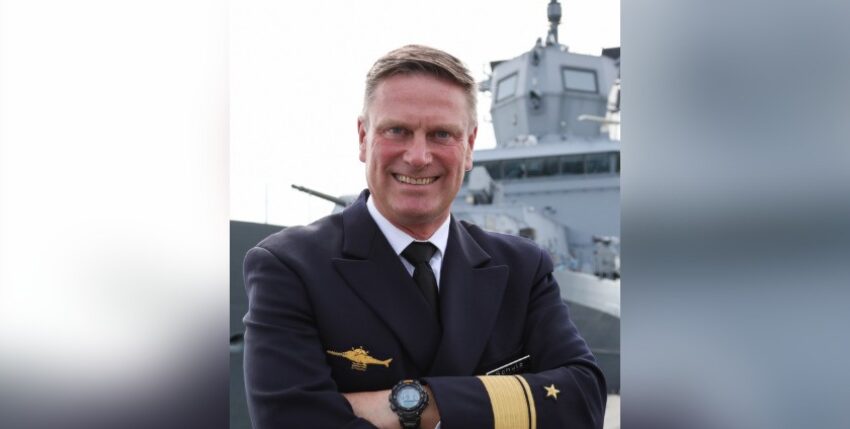The war in Ukraine has shaken our country out of a deep security-policy slumber. In the course of this awakening, we are rediscovering a now forgotten matter of course: armed forces must be ready for action and combat and be able to wage war if deterrence fails.
NATO has already reacted; deterrence and defence are the central elements of NATO's new strategic concept. This shift in focus also requires us to have combat-ready and capable naval forces on the northern flank of the NATO alliance area. With the Navy 2035+ vision, the Chief of Naval Operations has mapped out the path for our armed forces well into the next decade. At the strategic and military policy level, a turning point has been reached.
However, the effect of the politically declared turnaround has not yet fully materialised in the troops. The spirit of optimism and initial pragmatism of February 2022 have already evaporated in many places.
All environmental, occupational and operational safety regulations continue to be enforced for equipment and maintenance, even if they do not serve the original purpose or even corrupt it.
When it comes to personnel and training, we have to live with a soldier working time regulation that not only limits troop maintenance, but also restricts the time for gaining system and equipment knowledge and thus operational capability. We have to live with the fact that superiors in the most fundamental area of troop leadership have hardly any voice or influence when it comes to applications, recruitment and training processes in a centralised personnel management system. For almost all resources, the troops have been degraded to applicants in a sprawling jungle of predominantly civilian regulations.
However, honesty also means that some members of the force have made themselves at home in this (new) world. In this respect, we are at a crossroads; we must not continue with a focus on efficiency, supposed attractiveness through permanent facilitation and personal benefits. We must return to military effectiveness and soldierly virtues, but without making the mistake of wanting to turn back the clock. The new image of war - keyword multi-domain operations - is more complex, faster and more lethal than that of the (past) Cold War.
If we want to survive in future war scenarios and battles,
- the purpose of a warship must once again become the determining factor for design, equipment and operation,
- timeless basic military requirements such as valour, decisiveness, performance and healthy toughness must be consistently reflected in training and personnel selection,
- effectiveness and pragmatism must be prioritised over efficiency and process orientation,
- the convenient administration of the individual must once again be subordinated to the practical and lawful functioning of the whole, and
- managers must be put back in a position to promote the still abundant, motivated personnel and to sanction or prematurely part with unwilling personnel.
Immediately after taking office as Federal Minister of Defence, Boris Pistorius sent out a strong signal to improve and accelerate the procurement system and called for "even unnecessary shackles" to be thrown off and for products to be implemented as quickly as possible in order to cover the material requirements of the armed forces more quickly, effectively and unbureaucratically than before. All levels of command should act independently and on their own responsibility. We should not limit this appeal to procurement alone, but apply its spirit to our daily actions and all decision-making processes.
In the immediate aftermath of 24 February 2022, both servicemen and women and civilian employees proved on the basis of the Navy Inspector's directive "Everything that floats, out!" that if we really want to, we can actually do it and act pragmatically. This required courage and the will to make decisions, the autonomous utilisation of discretionary powers and the willingness to take calculated risks. We have provided the proof!
We have good superiors at all levels in the Bundeswehr in general and in the German Navy in particular, and I include civilian employees in this without reservation. In this respect, we as superiors should act accordingly and also encourage and urge our men and women in our subordinate areas at all levels to exercise independence, make decisions on their own responsibility, courageously utilise discretionary powers or even fight for them, and in doing so exercise fault tolerance. If not now, then when?
Flotilla Admiral Axel Schulz is commander of Flotilla 2.
Axel Schulz










